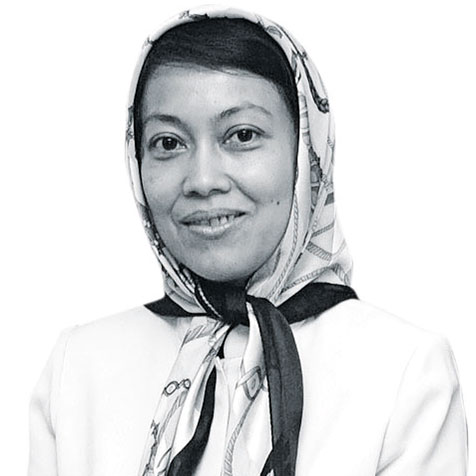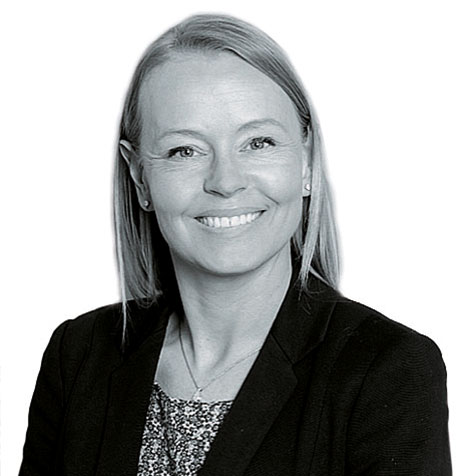At a glance
Bessie Hassan
Money expert, finder.com.au

To answer this, I must first pose another question: what does it mean to be a family? Does it mean a group or collection of individuals who live under one roof, or is it more about the relationship that ties these people together?
If it’s the latter, when does the relationship change or when does that tie break? Is it when a son or daughter becomes an adult and begins to work? I don’t think it ever changes.
I appreciate the presence of my children in the home. Without them, it’s just a house. I would never ask my children to pay board. I have three children, two of whom are adult, as well as my son-in-law and my mother living with me.
I now have a grandchild, so there are four generations living in the home together. I love coming home after work and seeing them and feeling the love that flows in the house. That, to me, is what it’s all about.
It has nothing to do with race or religion. It’s about the unit of a family. If children are raised well, they assume their responsibilities without rules or regulations or without having to pay board.
"I would never ask my children to pay board.”
Of course, my children contribute to the household. We share grocery expenses, for example, and support one another as a family, regardless of age.
When I’m older, I expect that we’ll continue to live as a family unit and look after each other. It’s a natural part of being a family and it comes from within.
Dr Delyse Hutchinson
Senior research fellow and clinical psychologist, Centre for Social and Early Emotional Development, Deakin University

There’s a broad perception in Australia that [young adults] living at home with their parents at no financial cost have it easy.
This may indeed be the case for some, however research shows that it certainly does not apply to all. The 2016 Australian Unity Wellbeing Index survey, which studied a nationally representative sample of Australian adults to monitor the subjective wellbeing of the population, revealed that while young adults aged 18-25 are among the happiest in Australia, those living at home with their parents have a somewhat lower life satisfaction score.
The national average score was 76.7 [out of 100], yet young adults living at home scored 72.0 – the lowest it’s been for 10 years. This score doesn’t indicate that they’re doing terribly, but does suggest that it may be difficult for them to leave home.
This group also scored the lowest on a range of domains measured by the index, such as personal relationships, community connectedness and achieving in life.
“I think it’s healthy for young people to make a meaningful contribution to a household.”
We don’t know how many of these young Australians are paying board. However, if I put my clinical psychologist’s hat on, I think it’s healthy for young people to make a meaningful contribution to a household.
In some families, this might be in the form of money, which can also help them learn to manage their finances. In other households, the contribution may be helping with chores.
Simply staying at home and not making a meaningful contribution to the household does not support young people to develop the life skills necessary for adult roles and responsibilities.
THE EXPERTS
Bessie Hassan
As money expert for Australia’s largest comparison site, finder.com.au, Bessie Hassan is an experienced commentator who often appears on national radio, television and in online publications to share money-saving tips and property advice. Hassan has a bachelor of business from the University of Technology Sydney and is passionate about empowering Australians to make better decisions.
Professor Dr Arfah Salleh
Dr Arfah is president and CEO of Human Governance Institute Inc., a “profit-for-charity” organisation championing human governance. A fellow member of CPA Australia and a member of the Malaysian Institute of Accountants, she has training and work experience in investment and fund management, as well as in systems design. She was previously vice-chancellor of two private universities and served as an advisor to the Ministry of Education (MOE) of Malaysia in developing its accounting curricula, besides being involved in two global business school accreditation bodies.
Dr Delyse Hutchinson
A senior lecturer in psychology at Deakin University and a researcher on the Australian Unity Wellbeing Index, Dr Delyse Hutchinson holds a doctor of philosophy and master of clinical psychology from Macquarie University. Her major research interests include understanding the developmental origins of mental and behavioural disorders.

